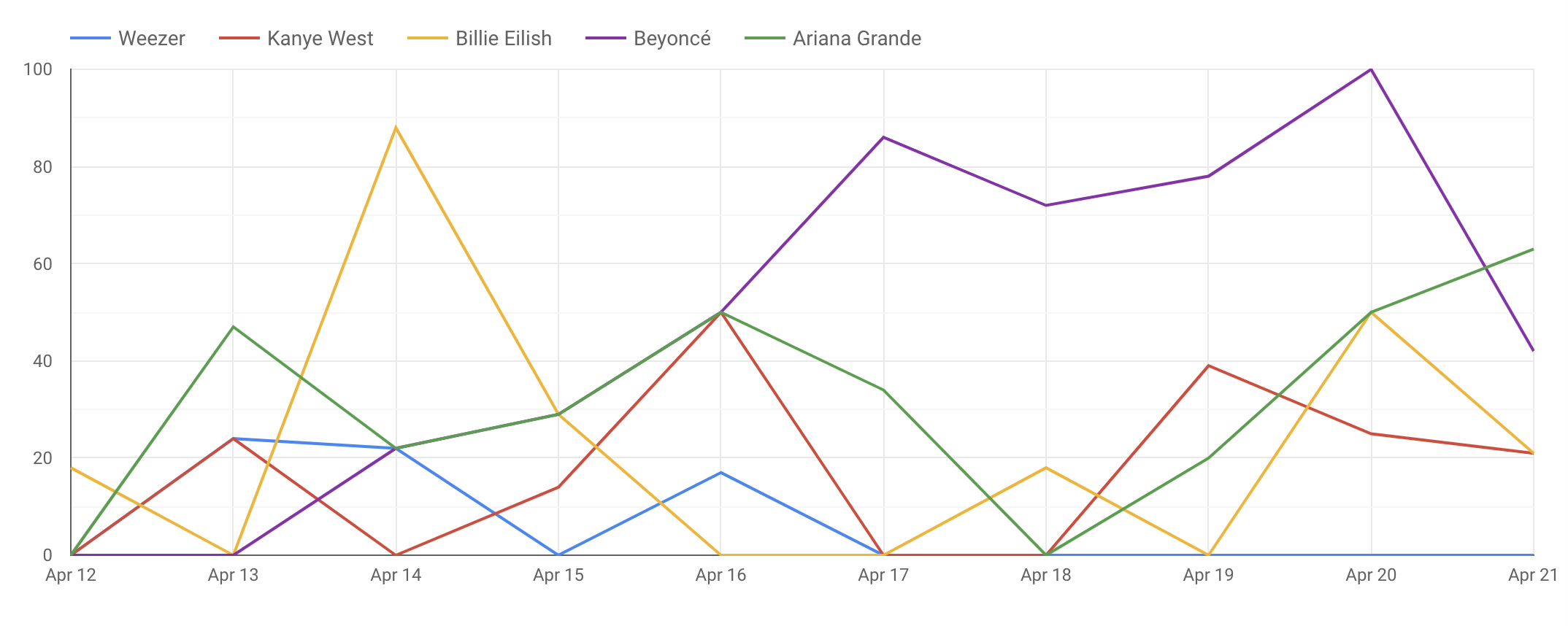Spotify data paints a similar picture. Though every performer but Weezer has a higher Popularity Index than Beyoncé, only she and Eilish experienced a lift (Eilish maintained a perfect score the entire time) over the second Coachella weekend. During this brief period, Kanye West and Grande trended downward by a few points.

